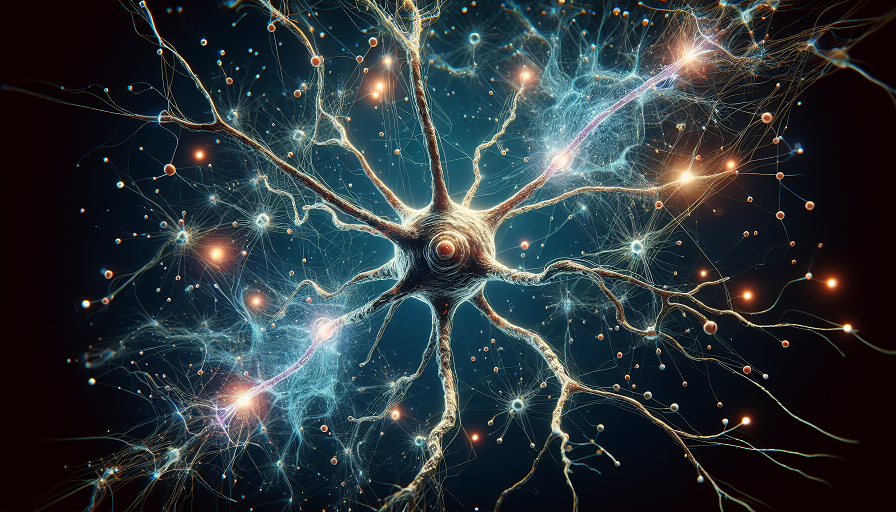
In our fast-paced world, it can sometimes feel like there’s a constant tug-of-war between what’s good for our bodies and what’s good for our minds. But what if these two aspects of ourselves could work together in harmony? Imagine unlocking greater potential by syncing your physical activities with mental focus—it’s not just a dream; it’s a science-backed approach to living a more vibrant and balanced life. Let’s dive into the fascinating intersection of fitness and focus and how it can make a noticeable difference in our everyday lives.
Contents
Why Exercise Matters for Mental Clarity
We often hear about the physical benefits of exercise, like building muscle, improving endurance, and losing weight. However, exercise is just as important for your brain as it is for your body. When you work out, your brain releases a rush of endorphins, often referred to as “feel-good” chemicals. These help to lift your mood, reduce stress, and give you a sense of clarity that feels refreshing and invigorating.
Additionally, regular physical activity increases blood flow to the brain, enhancing cognitive functions such as memory, concentration, and overall mental acuity. Scientific studies have shown that even moderate exercise can lead to improved performance in tasks that require attention and problem-solving skills. So whenever you lace up your running shoes or hop on a bike, remember that your mind benefits just as much as your body.
The Role of Mindfulness in Enhancing Focus
Mindfulness is more than just a buzzword; it’s a practice of bringing your attention to the present moment, free from judgment. When combined with the practice of exercise, mindfulness can take fitness to a whole new level. Whether you’re running, lifting weights, or doing yoga, focusing on your breathing and bodily sensations can help you become more attuned to your workout and enhance mental focus.
Mindful exercise encourages you to concentrate on your movements and tune out distractions, effectively training your brain to be more focused outside the gym as well. As you grow accustomed to this enhanced state of awareness, you may find that your ability to concentrate improves even during non-exercise times. Tasks that once seemed daunting can become easier to manage, and you’ll likely experience less mental fatigue.
The Impact of Diet on Brain and Body Connection
Nutrition plays a crucial role in keeping both your brain and body in optimal condition. Foods rich in omega-3 fatty acids, antioxidants, vitamins, and minerals can boost brain health and support cognitive function. A balanced diet provides the necessary fuel for both physical stamina and mental clarity, creating a feedback loop of positivity and energy.
Don’t underestimate the power of hydration either. Staying adequately hydrated helps maintain a clear mind and keeps your body functioning at its best. Dehydration, on the other hand, can lead to fatigue and reduced mental performance, highlighting the need for consistent fluid intake for a balanced and synchronized mind-body experience.
Nootropics: Enhancing Focus Through Supplements
In addition to diet and exercise, some people turn to nootropics, often known as “smart drugs” or brain supplements, to boost focus and cognitive function. These supplements are designed to enhance memory, creativity, and attention by supporting neurotransmitter function and improving brain circulation. Whether it’s a natural option like ginkgo biloba, or synthetic ones, nootropics can subtly bolster the brain’s capacity for focus.
It’s important to approach nootropics with a blend of curiosity and caution. While they can offer cognitive enhancements, their effectiveness can vary widely among individuals. Before adding any brain supplements to your routine, consulting with a healthcare professional is advised to ensure they are safe and compatible with your overall health plan.
Creating a Balanced Routine for Optimal Performance
A well-rounded routine that combines exercise, mindfulness, healthy eating, and potentially the strategic use of nootropics can work wonders for both your mental and physical well-being. Begin by setting small, realistic goals such as incorporating 20 to 30 minutes of physical activity into your day, practicing mindfulness for a few minutes, or choosing meals rich in brain-supportive nutrients.
Pay attention to how these practices impact your energy levels and concentration throughout the day. Over time, as your body gets accustomed to this new routine, you may find it easier to tackle complex tasks and manage stress more effectively. The synchronization of your mind and body will not only lead to better focus but also enhance your overall quality of life.
The Ripple Effect of a Synced Mind and Body
When your fitness and focus align, the benefits extend beyond personal growth; they touch the lives of those around you. As you become more centered and less stressed, your interactions with others will improve, fostering better relationships both at home and work. Your newfound energy and concentration will make you more productive, opening doors for new opportunities and experiences.
Ultimately, syncing the mind and body is about creating a harmonious lifestyle that supports your physical health and mental clarity. While the journey requires effort and commitment, the rewards of a well-balanced life are profound and well worth the investment. Embrace the path to a synced mind and body, and enjoy the enriched life that awaits.

